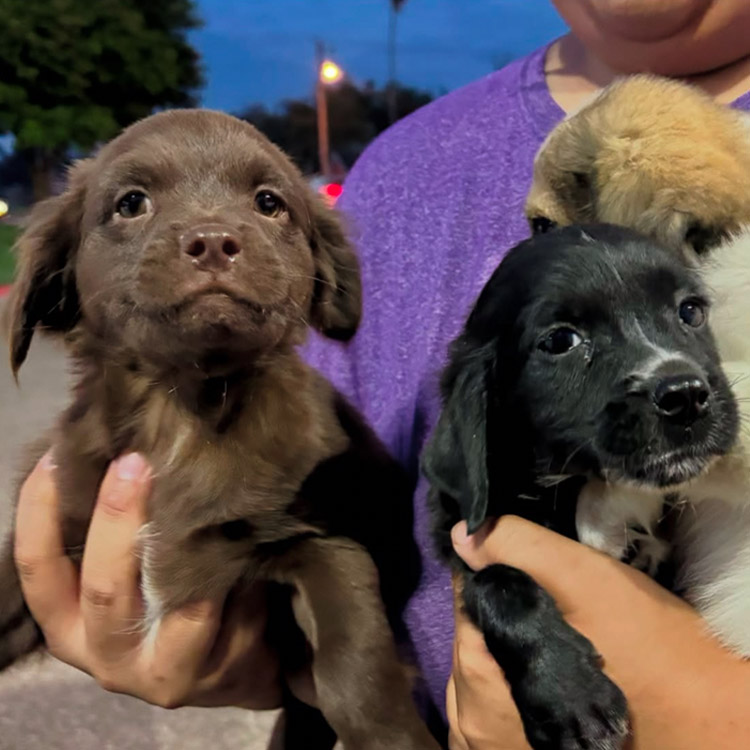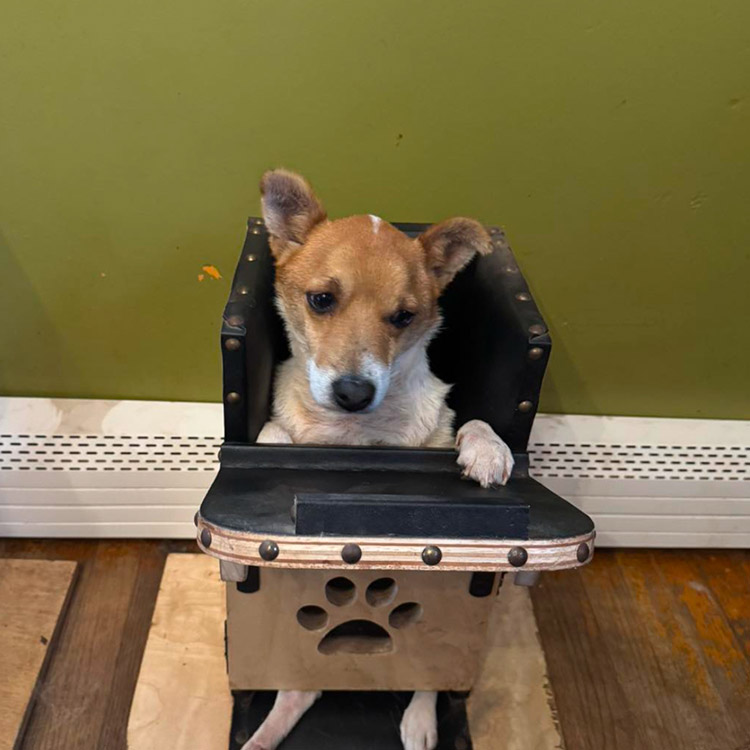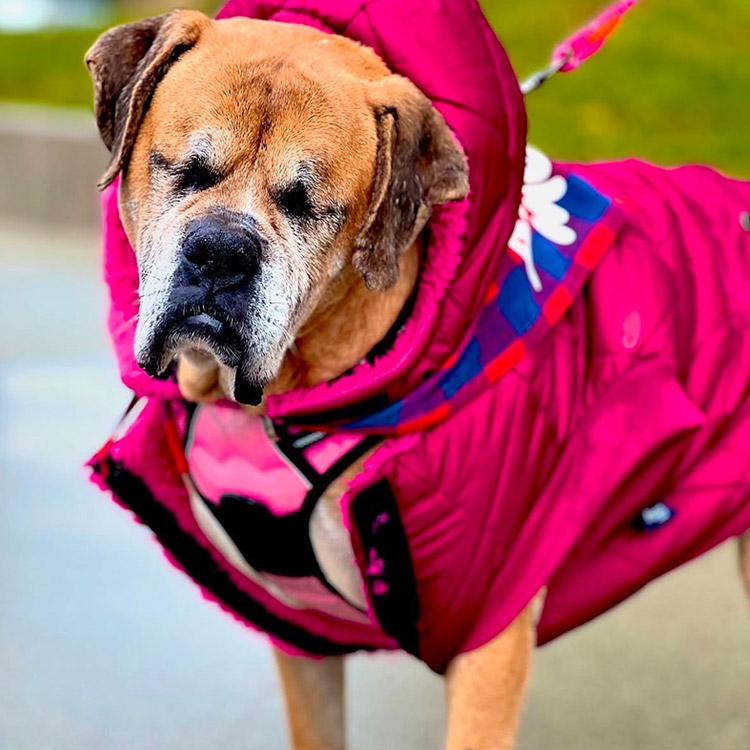Dogs, cats, and other pets become disabled for a variety of reasons. Many are neglected, injured, end up lost, or are abandoned. Others have had a loving family that are unable or unwilling to care for them once they become disabled. Regardless of the cause, these animals make their way into shelters and rescue organizations in increasingly large numbers.
Success in caring for disabled pets in rescue depends on the rescuer’s experience, whether they have knowledge and time for individual animals, their support system, availability of fosters, and finances. Decisions about care, potential placement, and how to manage individual pets depends on the nature of the disability and the circumstances surrounding the rescue, complicating issues like aggression and extensive medical needs, and the ability of the rescuers to provide proper care.
There’s a wide range of disabilities and degrees of care needed which dictate the path and outcome. Availability of qualified fosters and adopters dictates potential outcomes.
For example, a young dog with a leg injury and amputation can be relatively (not always, I know) straight forward in care and placement. But a paralyzed dog who needs to have their bladder expressed and wheels for mobility requires equipment and learned skills. It’s not that most can’t do it, but there’s no question it is a significant commitment with more logistics to sort out. Many people underestimate their ability to these more complicated animals so educating them through others that have succeeded is important in “recruiting” new members of the disabled pet parent club.
Placing disabled pets is complicated. We want to move them along but we want the placement to be successful. This page provides resources and guidance for rescuers who find themselves with disabled pets in their care.
Finding fosters for any rescued animal is not easy these days. So, finding fosters for pets with extra needs can be very difficult. But there is a subset of pet parents who are hooked into disabilities for one reason or another. They are scattered across all walks of life and locations. Social media and local outreach are essential in building a good foster network for any rescue organization. Local news channels and newspapers are key in finding solid foster families for rescued pets. Disabled pets do require extra considerations when placing them into a foster home. Applications screen for good candidates for individual pets but extensive interviews are required to be sure both sides are fully aware of expectations and are a good match. Discussions should stress that safety is a priority and should communicate responsibilities such as facilitating vet care, accommodations, supplies, and training.
Once pets are placed there should be diligent follow-up to be sure everything is working out as planned.
The key is in the match. Everyone in the household has to be on the same page when adopting a disabled pet. Some people like the idea of a dog who is blind, or a cat that has cerebellar hypoplasia. Their mindset needs to be in line with what the disabilities are and be realistic about limitations they present. If they are people that need to hike 15 miles each day on the weekend, they need to realize that their newly adopted paralyzed 40 pound dog is probably not going to be able to accompany them, and that he is too big for most to carry along. They need to have a dog sitter that can come in to check on the dog while they are away.
Finding fosters who are experienced with specific disabilities is a great relief for rescuers but it isn’t always possible. So rescuers should have plenty of info and resources for their fosters to be sure that their questions are answered and that they feel supported.
A comprehensive application is mandatory for the adoption process of disabled pets. An experienced rescuer should be assigned to evaluate applications. Pay attention to nuances in the answers and check all references as there are many important truths that come out of these calls. Most people have good intentions but will leave out or change some facts about their lives and ability to care for a disabled pet. Sometimes this happens because the potential adopter is unaware of the limitations of the pet, or simply, they have fallen in love with the pet and aren’t being realistic about their own ability to provide proper care.
That said there are lots of people willing and capable of caring for a pet with a disability. Experienced rescuers know how to screen applicants and may be able to mentor new rescuers who can learn from others.
Safety for the pet and the new family is a priority- fenced yards, gates, ramps, supervision, energy level of pets vs potential adopters, size and temperament of the pet vs children in the household, age, size, and energy level of the adoptable pet and other pets in the family,
Consider lifestyle of adopters- work at home or out of the house, children, other pets, layout of home, stairs, pool/lake or beach front, fenced in area, predators, understanding and attitude towards caring for a pet, physical demands of the disabled rescued animal
Check references- at least 3, one being a vet if they have had previous pets,
Home check and follow ups- in person by experienced rescuer, mentoring new rescuers, virtual visits are possible but must prove that this is where they live and not someone else’s house
Needs of pet- general care and more specific needs related to the disability, behavioral issues, chronic medical issues and vet follow ups, meds, supplies,
Expected financial burden- Depending on the disability and overall health of the pet, veterinary care and supplies can be costly. Adopters should be informed and aware of short- and long-term financial responsibilities. Of course, like any other pet, there are always unforeseen medical expenses. But being realistic and prepared are important when making decisions to adopt a particular pet.
Support system for new pet parents- within any community, veterinary practice, rescue organization’s previous adopters list, social media support groups, local dog parks, training centers, … there are people looking to support and mentor others who are new pet parent no matter what the topic or cause is. Be sure to join Facebook group which is called The Disabled Pets Community. Please send your adopters our way!
Collaboration and networking between shelters and rescue groups both locally or at a distance can be extremely helpful and beneficial to the animals and the rescuers. Some have a special interest in a certain type of animal, disability, age, so sharing expertise and even transferring animals between rescues is commonly done. Working together, sharing ideas, courtesy posts for other rescues, all help rescuers find good homes for their rescued pets.
Join and use our rescue organization list and network. Here’s the LINK.
We also have a Facebook group called The Disabled Pets Community. Here’s the LINK to the group.
Join our email list for our schedule of monthly zoom meetings to discuss a variety of disabled pet topics of interest to rescuers and others.
Here’s the LINK to our disabilities directory.

@yaquianimalrescue

@t-perfectimperfections

@theanimalrescuemission
